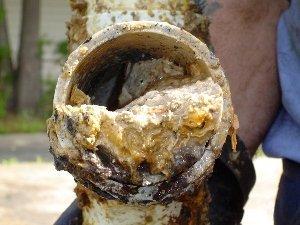What Not To Flush

Keeping the West Boylston Sewer system flowing continuously is a priority. In response to the Coronavirus crisis and shortage of toiletries, we've put together resources for residents to help us make your sewer system run smoother.
WHAT NOT TO FLUSH
When you use your toilet, shower, washing machine or dishwasher, waste water leaves your home through pipes that connect to the town sewer system. Many materials flushed or poured down the drain can harm the pipes that connect to town sewers as well as the town sewer system. Every property owner connected to the town sewer system can be a potential contributor to sewer problems, and a potential victim of those problems.
Putting the wrong things down the drain can damage the sewer system, cause sewer backups in your home, and sewer releases to the environment. Anyone who uses the town sewer system should be responsible for what they flush or pour down drains.
The only thing you should ever flush down a toilet is human waste and toilet paper. "Disposable" does not mean "flushable".
Here is a list of some things to keep out of the toilet.
- cleaning wipes of any kind (**even wipes labeled as flushable)
- disposable diapers
- tampons
- sanitary napkins
- cotton balls and swabs
- unused medications
- condoms
- facial tissue
- bandages and bandage wrappings
- wet mopping cloths
- hazardous waste
- paint, solvents, sealants & thinners
- automotive fluids
**Biodegradable wipes are designed to be thrown away (not flushed) with your usual household waste or composted. Some wipes on the market claim to be flushable; no matter what the label says, wipes do not belong in the toilet. Wipes may go down the drain with no problem, but when they hit a 45 degree elbow within the homeowner's plumping pipes going out to the street, that's when they start congregating. Then over months, over time, they're not being drawn out into the street, and eventually they completely block the sewer and then people get a backup. Besides causing clogs, wipes can actually damage wastewater equipment. Even wipes labeled as "flushable" can lead to toilet and pipe blockages.
FATS, OILS AND GREASE
Grease in sewer pipes causes sewer maintenance problems for property owners and the town. Never pour grease in your sink drain and try to use your garbage disposal less.
Grease is a byproduct of cooking. It comes from meat, lard, oil, shortening, butter, margarine, food scraps, baking goods, sauces and dairy products. When grease washes down the sink, it sticks to the insides of the pipes that connect your home or business to the town's sewer. It also coats the insides of the town's sewer pipes.
Eventually, the grease can build up unitl it completely blocks sewer pipes. That can create difficult and expensive maintenance problems for both the town and private home owners.
Blocked sewer pipes can cause raw sewerage to back up into your home or business, or overflow into streets and streams.
Garbage disposals don't keep grease out of sewer pipes. Products that claim to dissolve grease may dislodge a blockage, but will only cause problems farther on down the line when the grease hardens again.

